15 High-Protein, Low-Fat Foods to Help You Lose Weight Now

Healthy fats are good for us, but if you're tracking macros, it's useful to know which proteins are low-fat so you can choose which foods to get your fats from (for example, picking beef over yogurt). "Protein is invaluable when it comes to increased fullness and satisfaction after a meal," registered dietitian Annalise Pratt, RD, tells the Cleveland Clinic. "Knowing how to use this key nutrient as part of a balanced diet puts the odds of losing weight on your side." Here are 15 high-protein, low-fat foods that will help you lose weight, get fit, and be strong.
Non-Fat Milk
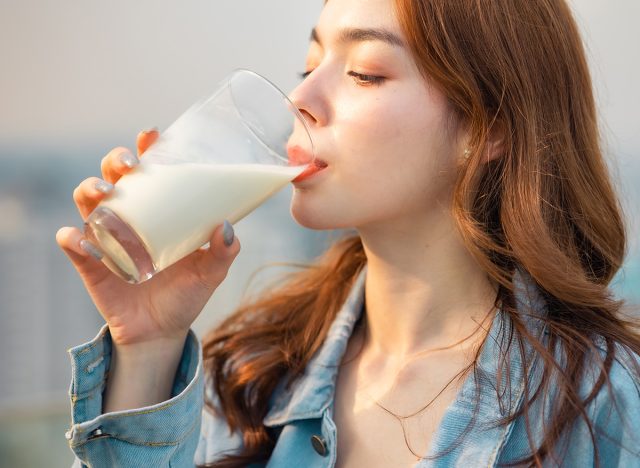
Milk is an excellent source of protein. "Calcium and protein are the main sources of nutrition that we get from milk and other dairy products," Julia Zumpano, RD, LD, tells the Cleveland Clinic. "But milk also includes other vitamins and nutrients that all offer different benefits to the body."
Quinoa
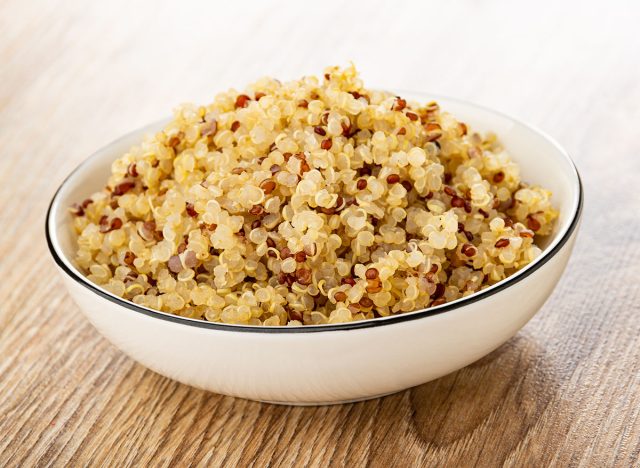
Quinoa is a good choice of protein for vegans and vegetarians. "Quinoa is a plant-based protein source that is also a complete protein," says Harvard Health. "A cup of cooked quinoa provides about 8 grams of protein and 5 grams of fiber. Quinoa is also a good source of minerals such as manganese, phosphorus, and copper."
Non-Fat Greek Yogurt
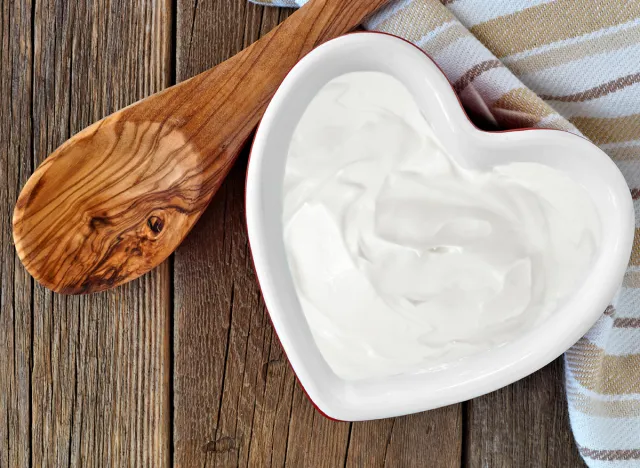
Low-fat Greek yogurt is an ideal snack (make sure you choose one without added sugars). "Nutrition-wise, yogurt is probably one of the best ways to take in your dairy," dietitian, chef, and assistant professor at Johnson & Wales University William Lendway tells AARP. "It's an easy source of protein and vitamin D because of its fortification and calcium."
White Fish
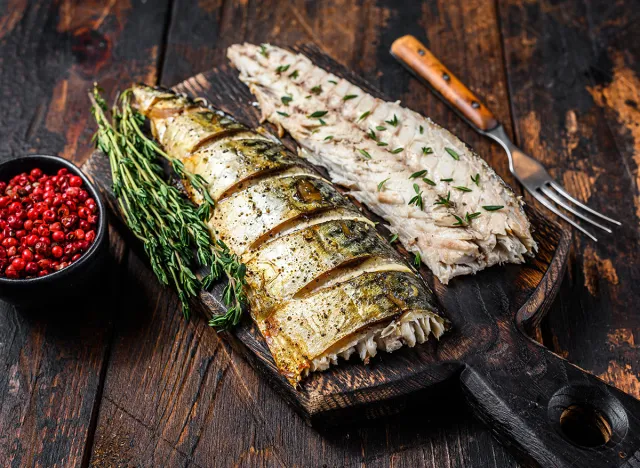
White fish is a good healthy source of protein. "White fish is a low-fat protein source," says the British Heart Foundation. "Oily fish, such as sardines, mackerel or salmon, are a little higher in fat but contain omega-3 fatty acids, which are heart healthy. Oily fish are also good sources of vitamins A and D. Aim to have two portions of fish a week, of which one should be oily.
Turkey
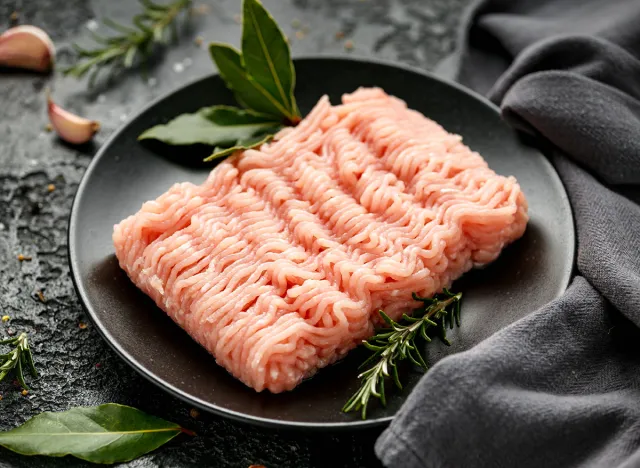
Turkey is a great high-protein, low-fat food. "Lean meats such as chicken, turkey, beef, and pork are excellent sources of high-quality protein as well as important nutrients like iron and zinc," according to Harvard Health. "To avoid unhealthy saturated fat, opt for lean or low-fat meat options such as lean ground beef, pork loin, or skinless chicken breasts."
Cottage Cheese
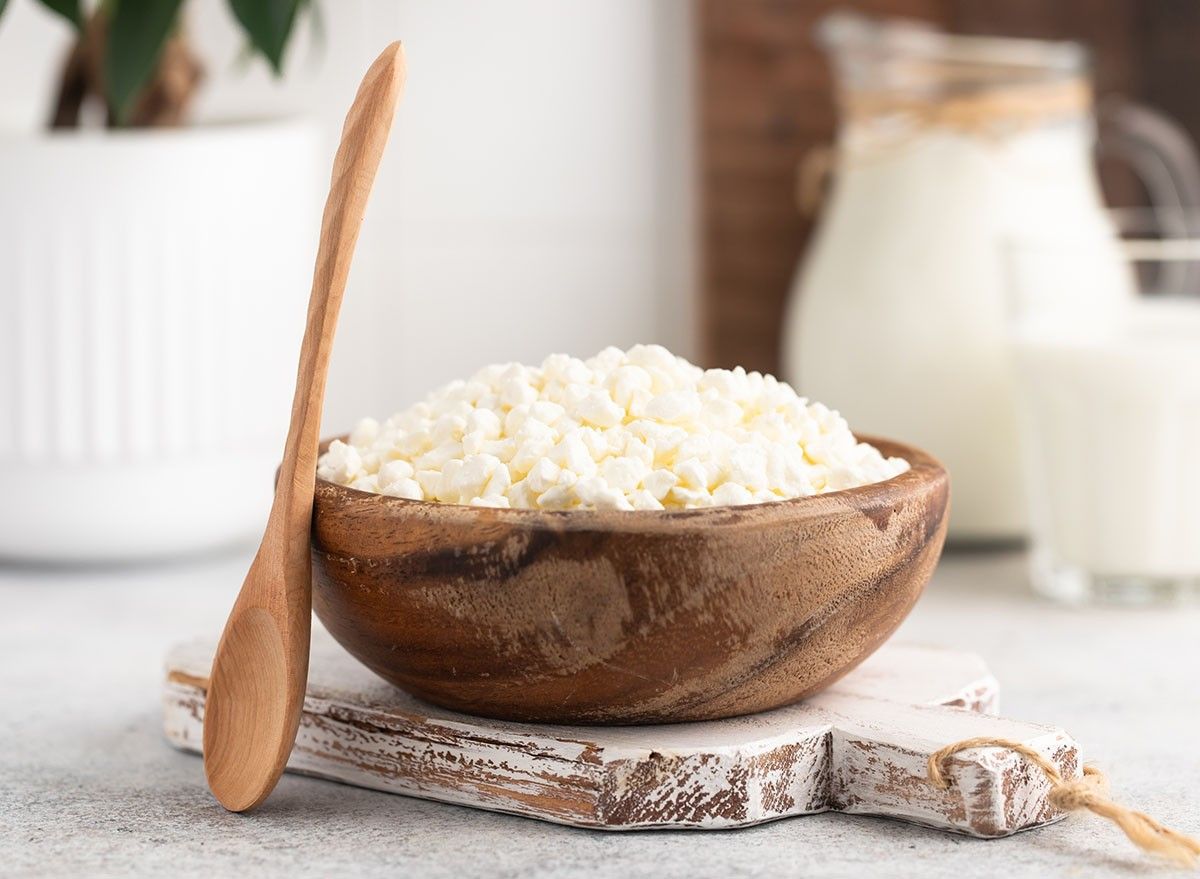
Cottage cheese is versatile and low in fat. "Cottage cheese is high in protein and is an excellent source of calcium," clinical dietitian Carly Zimmer tells OSF HealthCare. "Choosing a low-fat cottage cheese can reduce saturated fat intake when substituting it for other higher fat foods, such as cream cheese, sour cream, mayonnaise or ricotta cheese."
Chicken Breast
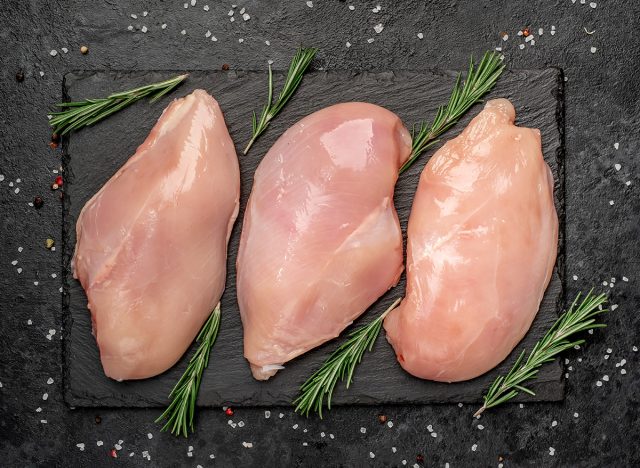
Chicken breast (skinless) is a great high-protein, low fat option. "Chicken is one of the most popular sources of protein. It has a favorable taste and great nutritional profile," Zumpano says. "Chicken provides protein, niacin, selenium, phosphorus and vitamins B6 and B12."
Edamame
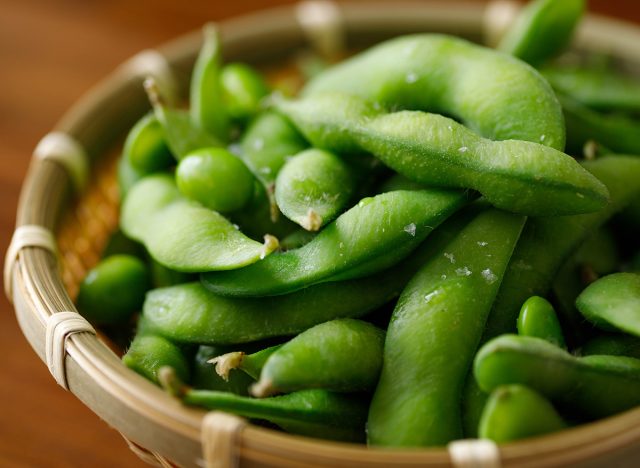
Edamame is high in protein and low in fat, and great for a snack. "Unlike other pulses, soya beans are a complete protein, comparable in quality with animal protein, but are low in fat and contain fiber and iron," says the British Heart Foundation. "Eating 25g of soya protein a day, instead of meat, can help lower cholesterol levels. This is equivalent to a glass of soya milk, a pot of soya yogurt or an 80g serving of tofu."
Lentils
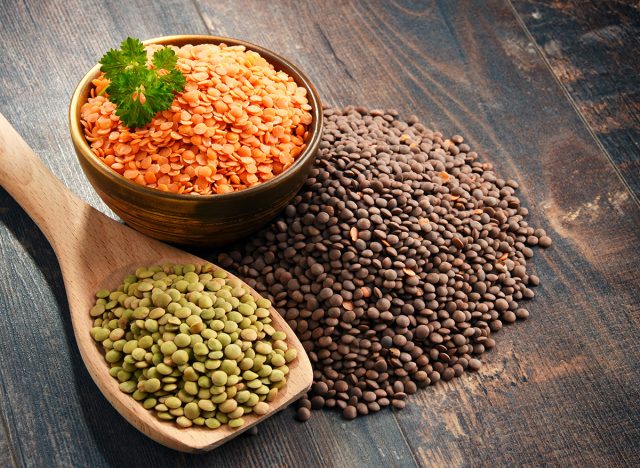
Lentils and other pulses are a great source of plant-based protein. "Pulses are an inexpensive protein choice, are high in fiber and a source of iron," says the British Heart Foundation. "They are part of the legume family and include all beans, peas and lentils. If you buy tinned pulses, check the label and choose ones that have no added salt or sugar. They are easy add-ins to sauces, soups and stews, even if they're not used in the original recipe."
Chickpeas
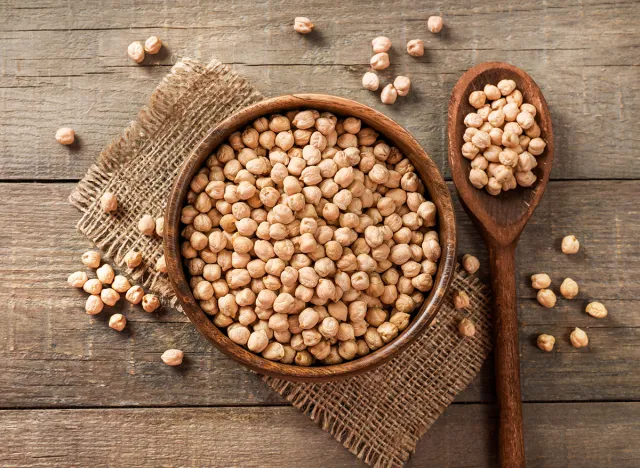
Chickpeas are another great source of plant-based protein. "While naturally low in saturated fat, chickpeas are nutrient-dense," dietitian Caitlin Terpstra tells the Mayo Clinic Health System. "They provide nearly 20 grams of protein in a ½-cup serving and 5 grams of dietary fiber. Chickpeas also are a source of folate, iron, vitamin C and phosphorus."
Shellfish
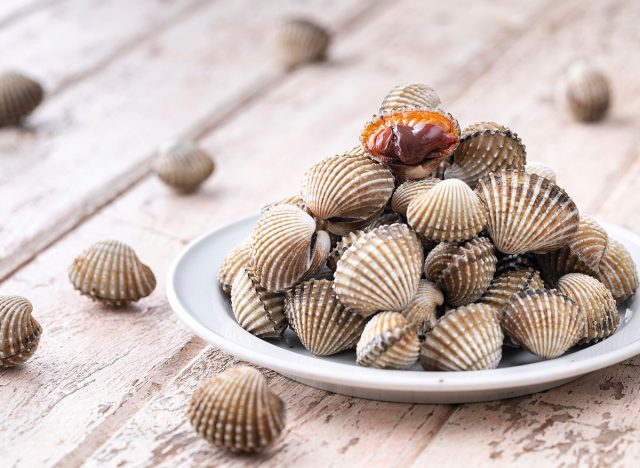
"Shellfish are high-quality protein sources—just like land animals—meaning they have all the essential amino acids," Faye Dong, professor emerita of food science and human nutrition at the University of Illinois, tells TIME.
Lean Beef
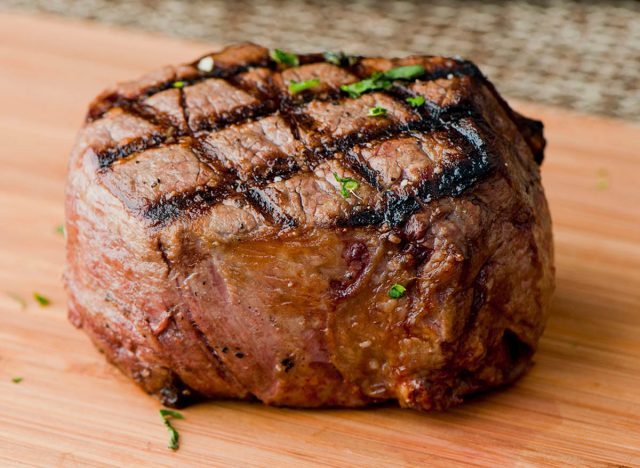
Lean beef is packed with protein. "Lean ground beef is a source of high-quality protein, and you don't need a lot to get the protein you need," Dana Angelo White, MS, RD, ATC tells Food Network. "Just three ounces delivers 22 grams of protein, along with a healthy dose of iron, zinc and vitamin B12."
Whole Grains
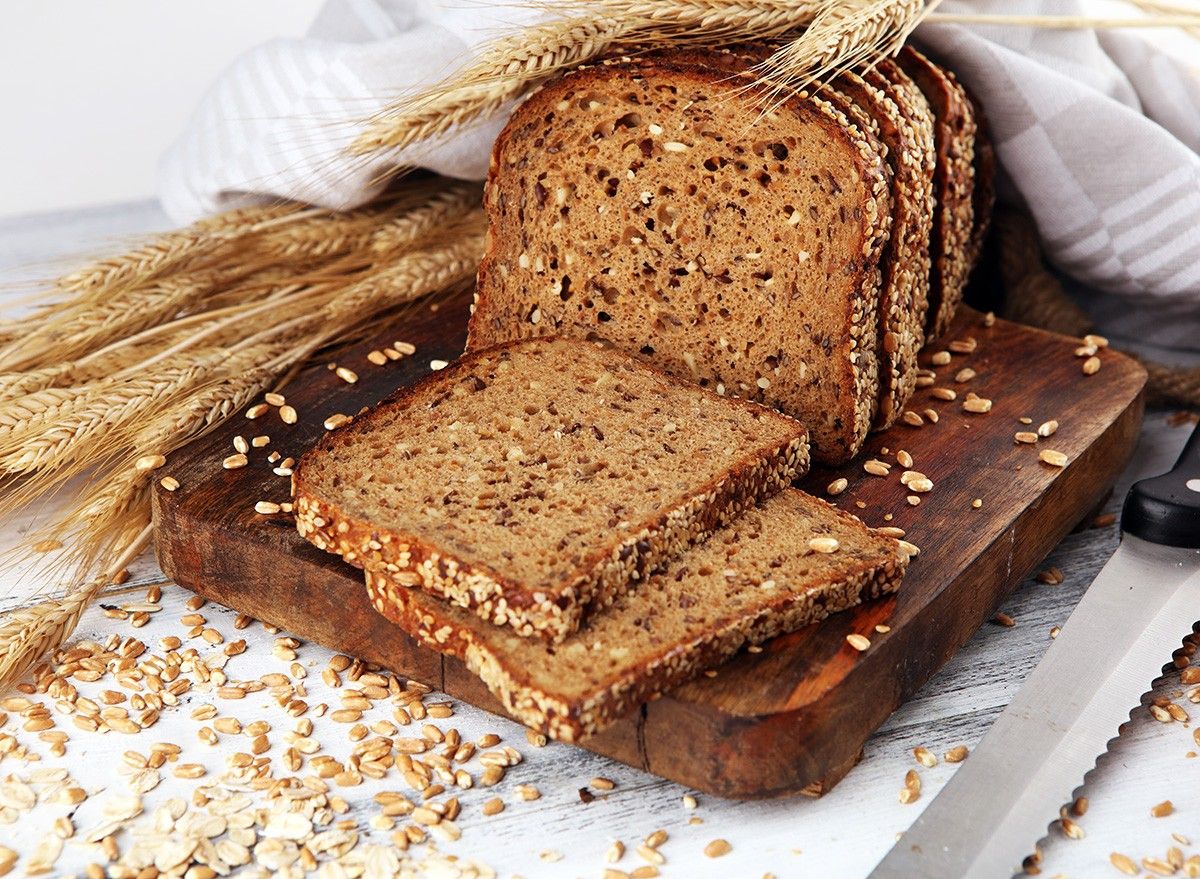
Whole grains are packed with fiber and protein. "Whole grain breads, rice and pasta have more protein, fiber and iron than white versions," says the British Heart Foundation. "Brown rice with beans, or bread with hummus or nut butter, can give you as much protein as a piece of meat."
Tofu
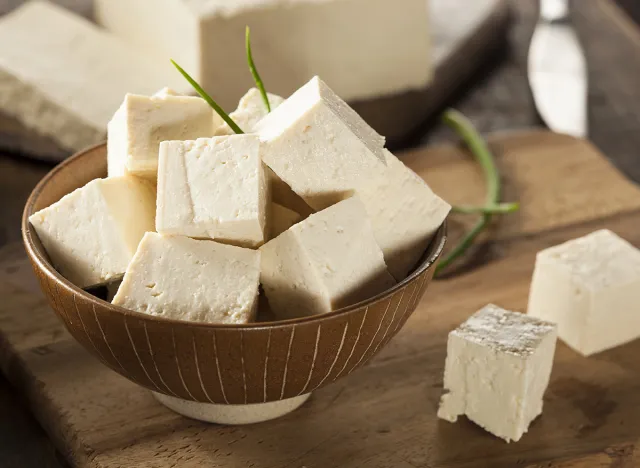
Tofu is versatile, delicious, and good for you. "Just a half cup of tofu gives you eight to 10 grams of protein (depending on whether it's soft or firm), while one cup of shelled edamame, a.k.a. whole, immature soybeans, gives you 17 grams." White says. "Calcium-set tofu also gives you a healthy dose of the bone-building nutrient, while edamame also packs a whopping eight grams of fiber."
Eggs
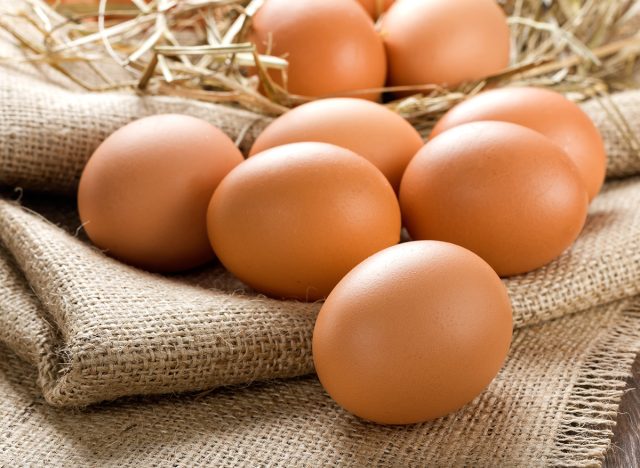
Eggs are versatile, satiating, and packed with nutrients. "The protein found in eggs — both whole eggs and egg whites — is really high quality protein, containing all of the essential amino acids we need," wellness dietitian Kylie Arrindell tells Houston Methodist. "About 40% of this protein is found in the egg yolk, and the other 60% is in the egg whites." And if you enjoyed this article, take advantage of these 20 Superfoods for People Over 50.




